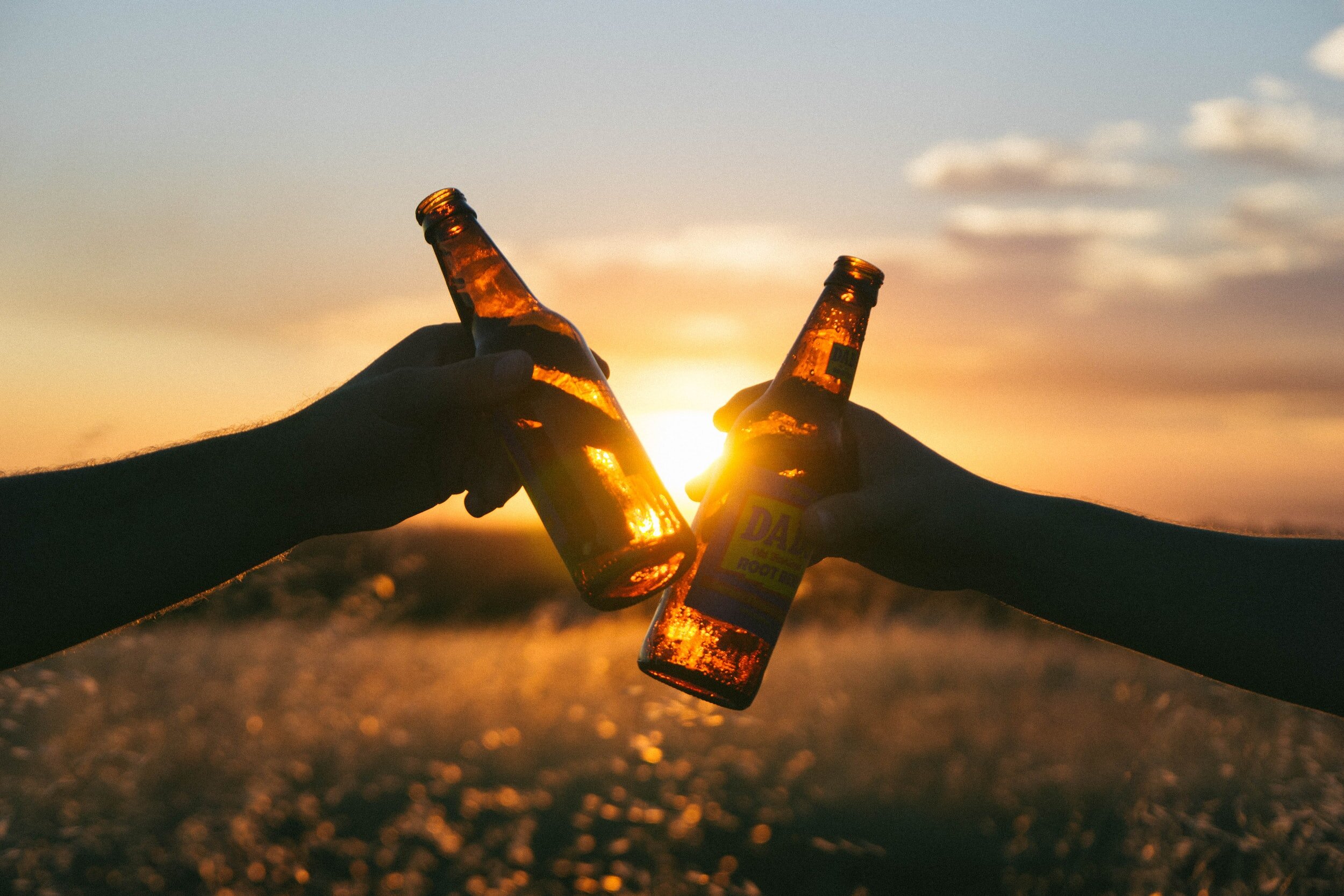Effects of Alcohol on Sleep Apnea
Alcohol is a great way to relax after a busy week at work. Hanging out with friends, family, coworkers, or people you just met and enjoying a nice chilled beverage can be a great way to destress after a long day. Something that you may not have thought of is that it relaxes the muscles in your throat as well.
Obstructive Sleep Apnea is when the structural muscles relax, and the airway is blocked. This makes your brain go into panic mode, waking you up, and leaving you gasping or choking for a breath of air. It is a potentially serious health condition which can lead to stroke, heart disease, heart failure, high blood pressure, oxygen desaturation, and more! Obstructive Sleep Apnea also impacts the way you breathe while you’re asleep.
Risks of Alcohol on Sleep Apnea
Sleep apnea occurs when your airway narrows due to structural muscles relaxing, causes an interruption in the breathing cycle. This disruption wakes the person up, but sometimes they don’t even know that they woke up because of how fast they fell back asleep. For those who suffer from sleep apnea, the blockage becomes more apparent due to the consumption of alcohol and it’s increased affects of length between breaths along with the delay when the brain communicates to the body to begin breathing after an apneic episode. The increased severity of the affects can worsen the falling of oxygen levels. Those falling of levels is called oxygen desaturation. Consuming alcohol is also know to cause lower oxygen desaturations among those who suffer from obstructive sleep apnea, and caused the condition to worsen symptoms such as snoring and caused other symptoms.
Alcohol can also affect other medical conditions and sleep disorders such as increasing the total time asleep and the length of time to fall asleep. Many medical professionals promote the abstaining from all alcohol use if suffering from sleep apnea or other sleep conditions. If it is something that you enjoy, aim to enjoy that beverage several hours before going to bed to help the conditions that may be experienced.
For some, alcohol is treated as a sedative. 30% of those who suffer from insomnia have used alcoholic beverages to aid in the process of falling asleep. 67% of those 30% stated that the alcoholic beverage aided in getting to sleep.
Can Heavy Drinking Cause Sleep Apnea?
Although it does not directly cause sleep apnea, it does have a large affect on those who suffer from it. Alcohol is known as a trigger for worsening sleep apnea. Many of those suffering from sleep apnea, are not diagnosed due to the symptoms being unknown or swept under the rug. Many people snore, but few know that sleep apnea is one of the causes for severe snoring.
Can Alcohol Affect Your Breathing?
Knowing if or how alcohol is affecting your breathing can be a large clue to know if there is an underlying breathing or health condition. Adults who engage in drinking often are found to have less nitric oxide in their exhalations versus those who did not engage in drinking. Excessive drinking can cause an imbalance of the healthiness of the lung. Alcohol is also found to slow your breathing and cause a person to breathe more shallow breaths. Alcohol is also known to relax your body, which can cause your upper airway to collapse.
After drinking, why do I wake up so often?
Alcohol can cause disruptions in the sleeping patters and cycles. There are people, if they drink often, who often have times of extreme fatigue throughout the night even when they don’t consume alcohol. Those who drink are 5-10 times more likely to be diagnosed with substance disorders versus those without sleep disorders.
Alcohol Worsens Sleep and Daytime Fatigue
After a night of drinking, many suffer the next morning due to a rough night of trying to sleep or even experience a hangover. For some, they experience difficulty falling asleep and staying asleep post-drinking. Not getting enough sleep possibly could be caused by the worsening of breathing while a person sleeps. The person doesn’t have the same sleep hygiene when they consume alcohol before going to sleep, so the person may wake up feeling drowsy, sleepy, and possibly ill.
What About Alcohol in Moderation?
If you suffer from sleep apnea, it may be best to abstain from use of alcohol. By abstaining, it can reduce the risk of worsening your sleep condition/disorder.
Enjoying an alcoholic beverage occasionally is not bad. Keeping everything in moderation will help if you notice effects or symptoms on your daily routine or even in the quality of your sleep hygiene. Many abstain from alcohol due to the increased risks of health and medical conditions.
Getting Diagnosed for Sleep Apnea
If you believe that you are experiencing side affects of Obstructive sleep apnea or another medical issue, please reach out to your doctor to get a professional opinion. If alcohol is a frequent remedy for relaxation, it has the potential to cause health risks. The best way to stay health is to have your doctor give the best health plan for you!
More Information
Alcohol consumption and it’s affects on Sleep Apnea - www.verywellhealth.com
Sleep Apnea - www.sleepdr.com
Alcohol Consumption and Worsening Sleep Apnea - www.ajmc.com
Alcohol’s affect on Sleep Apnea - www.sleepcareonline.com
Sleep Apnea and Drinking - lowtcenter.com







